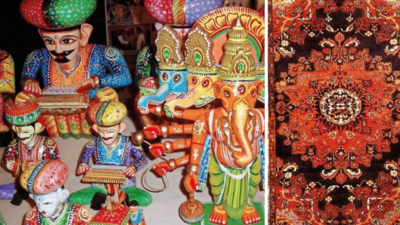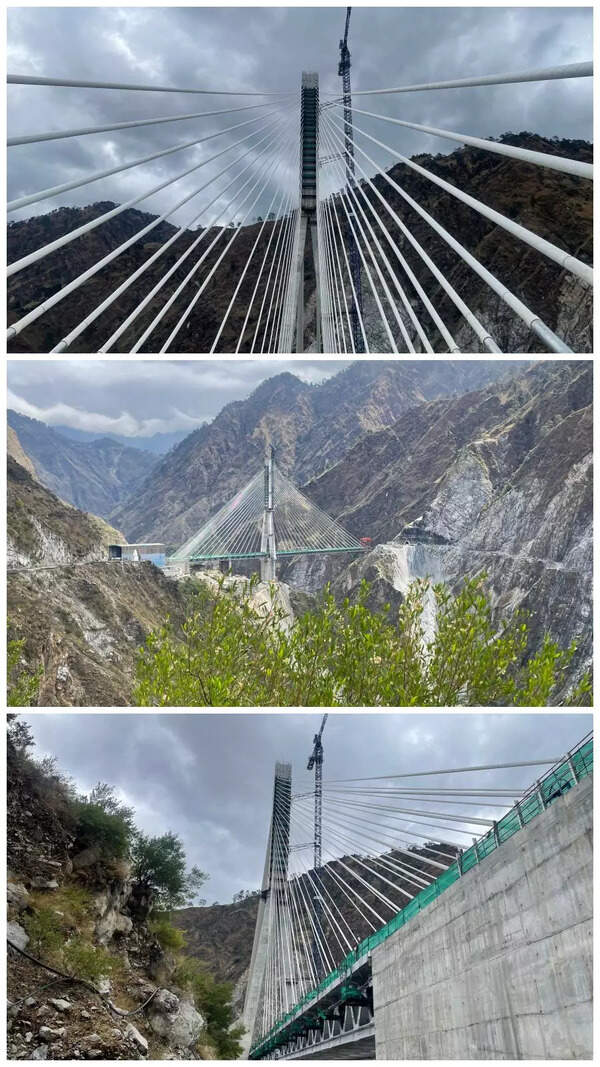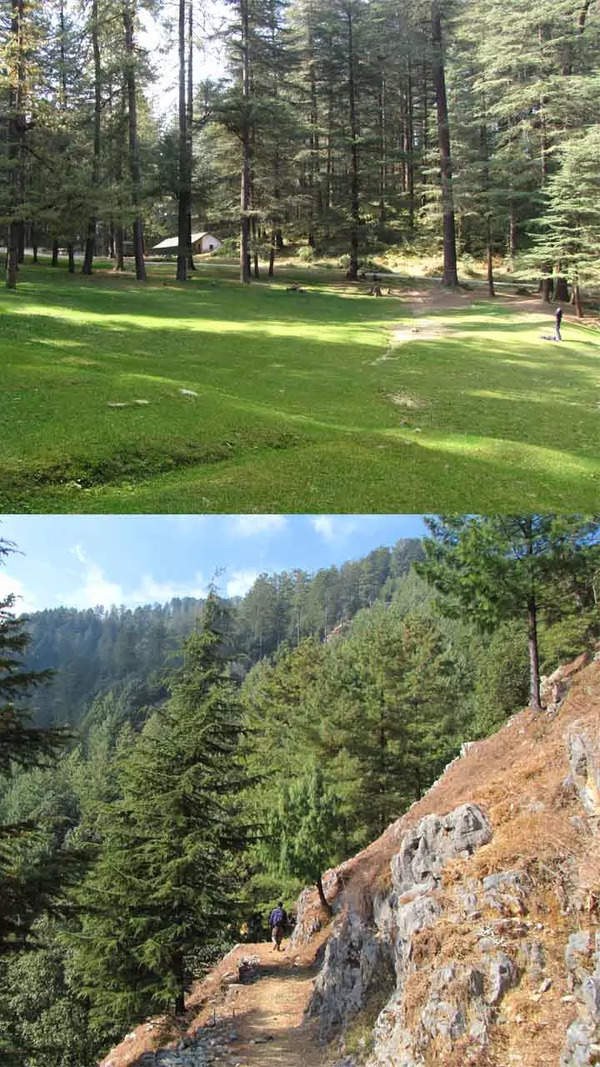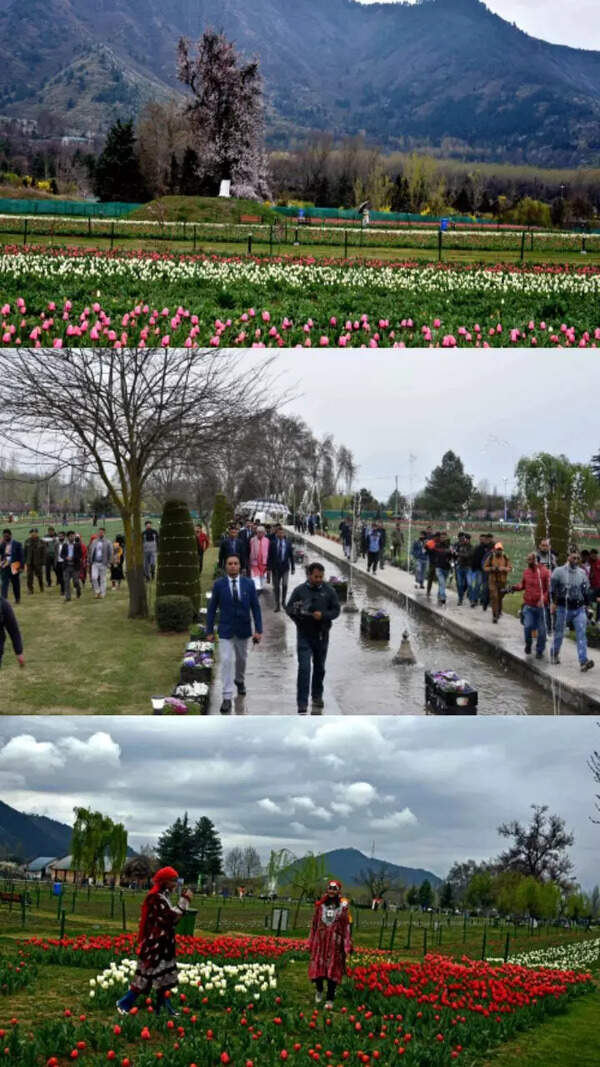- News
- City News
- varanasi News
- In boost to GI-tagged goods, Kashi among 'towns of export excellence'
Trending Topics
In boost to GI-tagged goods, Kashi among 'towns of export excellence'

From wooden crafts, Mirzapur-Bhadohi carpet, glass beads, Banarasi dupatta, meenakari jewellery & the famous Banarasi brocade and silk saree, Kashi is a hub of GI-certified products
VARANASI: Varanasi has been included in the list of 'towns of export excellence' in the new Foreign Trade Policy released on Friday.
It is among four new towns of export excellence declared in addition to the already existing 39 towns of export excellence. They are Faridabad for apparel, Moradabad for handicrafts, Mirzapur for handmade carpet and dari, and Varanasi for handloom and handicraft.
The parliamentary constituency of Prime Minister Narendra Modi is known internationally for its traditional handloom and handicraft goods, which have great export values as well as potential.
It has emerged as an important hub of Geographical Indication (GI) certified products of handloom and handicrafts. So far, Varanasi alone has a share of nine GI-tagged goods out of 33 products produced in entire Uttar Pradesh. The adjoining Mirzapur district also produces GI-tagged handmade carpet and dari.
Handloom: In the handloom sector, the famed silk brocade and saree, which is the first choice of the bridal attire, is also the first GI product of Varanasi that got the certification in the name of 'Banaras Brocade and Sarees' in 2008-09.
After getting the GI tag, tremendous increase in the demand and sale of the product was seen, said GI expert Padma Shri Rajni Kant. According to him, over 12 lakh people are associated directly or indirectly in the handloom silk industry of the region.
Banaras Brocade Sarees are made of finely woven silk and decorated with intricate designs using zari; this ornamentation is what makes the sarees heavy. Their special characteristics are Mughal-inspired designs/elements such as intricate floral and foliate motifs, such as kalga and bel.
Handicrafts: Varanasi produces a wide range of GI-tagged handicrafts that include Banaras Gulabi Meenakari Craft, Varanasi Soft Stone Jali Work, Varanasi Wooden Lacquerware and Toys, Banaras Metal Repousse Craft, Varanasi Glass Beads, Banaras Zardozi, Banaras Wood Carving and Banaras Hand Block Print.
Gulabi Meenakari: Varanasi is known for its Gulabi Meenakari (pink enamelling). Meenakari is the art of decorating a metal surface by fusing mineral substances on it. Meenakari was introduced into India by the Mughals. The meenakars in Varanasi claimed that the position of the art of Gulabi Meenakari was prosperous till about hundred years ago.
Soft Stone Jali Work: The Soft Stone Jali Work is another craft of Varanasi. The Jali or fretwork is intricately carved on soft stone and its process requires supreme mastery of masonry and design making. It epitomizes both high skill and superior quality of craftsmanship.
Delicately chiseled and decorated with inlay work, these elaborately carved jalis demand time in their making along with the skill and creativity of the masters.
In Varanasi, the jali craft work can be seen on forts, zamindari homes, places of worship and ancient monuments.
Wooden Lacquer Ware: City is also famous for its wooden lacquer ware and wooden toys. Designs are created with the natural veins of the wood. These toys are made without any joints and are attractive and safe playthings for children. It is an ancient craft, where the toys are made from wood. Sets of birds, animals, musicians and dance ensembles are also available packed in boxes.
Beads And Bead Products: City is one of India's largest exporters of beads and bead products. Different types of beads are used to ornament various products like clothing, decorative items, curtains, purses, clothing accessories and jewellery. More than 2,000 artisans are involved in bead production and handicrafts in Varanasi, with most of them being concentrated in the areas of Chandpur, Kandwan and Ramnagar. Major products include earrings, bracelets and necklaces made out of multi coloured glass beads.
Handmade Durrie: Mirzapur's handmade dari is one among a multitude of styles of floor coverings. They are defined essentially by the use of the Panja for weaving and are also known for their fairly bold colours and patterns. They are woven in a weft faced plain weave on simple horizontal looms. The mix of traditional and contemporary designs is evidence of a high degree of workmanship. Its uniqueness lies in the fact that the whole process, from designing and weaving to finishing, is entirely manual.
It is among four new towns of export excellence declared in addition to the already existing 39 towns of export excellence. They are Faridabad for apparel, Moradabad for handicrafts, Mirzapur for handmade carpet and dari, and Varanasi for handloom and handicraft.
The parliamentary constituency of Prime Minister Narendra Modi is known internationally for its traditional handloom and handicraft goods, which have great export values as well as potential.
It has emerged as an important hub of Geographical Indication (GI) certified products of handloom and handicrafts. So far, Varanasi alone has a share of nine GI-tagged goods out of 33 products produced in entire Uttar Pradesh. The adjoining Mirzapur district also produces GI-tagged handmade carpet and dari.
Handloom: In the handloom sector, the famed silk brocade and saree, which is the first choice of the bridal attire, is also the first GI product of Varanasi that got the certification in the name of 'Banaras Brocade and Sarees' in 2008-09.
After getting the GI tag, tremendous increase in the demand and sale of the product was seen, said GI expert Padma Shri Rajni Kant. According to him, over 12 lakh people are associated directly or indirectly in the handloom silk industry of the region.
Banaras Brocade Sarees are made of finely woven silk and decorated with intricate designs using zari; this ornamentation is what makes the sarees heavy. Their special characteristics are Mughal-inspired designs/elements such as intricate floral and foliate motifs, such as kalga and bel.
Handicrafts: Varanasi produces a wide range of GI-tagged handicrafts that include Banaras Gulabi Meenakari Craft, Varanasi Soft Stone Jali Work, Varanasi Wooden Lacquerware and Toys, Banaras Metal Repousse Craft, Varanasi Glass Beads, Banaras Zardozi, Banaras Wood Carving and Banaras Hand Block Print.
Gulabi Meenakari: Varanasi is known for its Gulabi Meenakari (pink enamelling). Meenakari is the art of decorating a metal surface by fusing mineral substances on it. Meenakari was introduced into India by the Mughals. The meenakars in Varanasi claimed that the position of the art of Gulabi Meenakari was prosperous till about hundred years ago.
Soft Stone Jali Work: The Soft Stone Jali Work is another craft of Varanasi. The Jali or fretwork is intricately carved on soft stone and its process requires supreme mastery of masonry and design making. It epitomizes both high skill and superior quality of craftsmanship.
Delicately chiseled and decorated with inlay work, these elaborately carved jalis demand time in their making along with the skill and creativity of the masters.
In Varanasi, the jali craft work can be seen on forts, zamindari homes, places of worship and ancient monuments.
Wooden Lacquer Ware: City is also famous for its wooden lacquer ware and wooden toys. Designs are created with the natural veins of the wood. These toys are made without any joints and are attractive and safe playthings for children. It is an ancient craft, where the toys are made from wood. Sets of birds, animals, musicians and dance ensembles are also available packed in boxes.
Beads And Bead Products: City is one of India's largest exporters of beads and bead products. Different types of beads are used to ornament various products like clothing, decorative items, curtains, purses, clothing accessories and jewellery. More than 2,000 artisans are involved in bead production and handicrafts in Varanasi, with most of them being concentrated in the areas of Chandpur, Kandwan and Ramnagar. Major products include earrings, bracelets and necklaces made out of multi coloured glass beads.
Handmade Durrie: Mirzapur's handmade dari is one among a multitude of styles of floor coverings. They are defined essentially by the use of the Panja for weaving and are also known for their fairly bold colours and patterns. They are woven in a weft faced plain weave on simple horizontal looms. The mix of traditional and contemporary designs is evidence of a high degree of workmanship. Its uniqueness lies in the fact that the whole process, from designing and weaving to finishing, is entirely manual.
Start a Conversation
FOLLOW US ON SOCIAL MEDIA
FacebookTwitterInstagramKOO APPYOUTUBE










